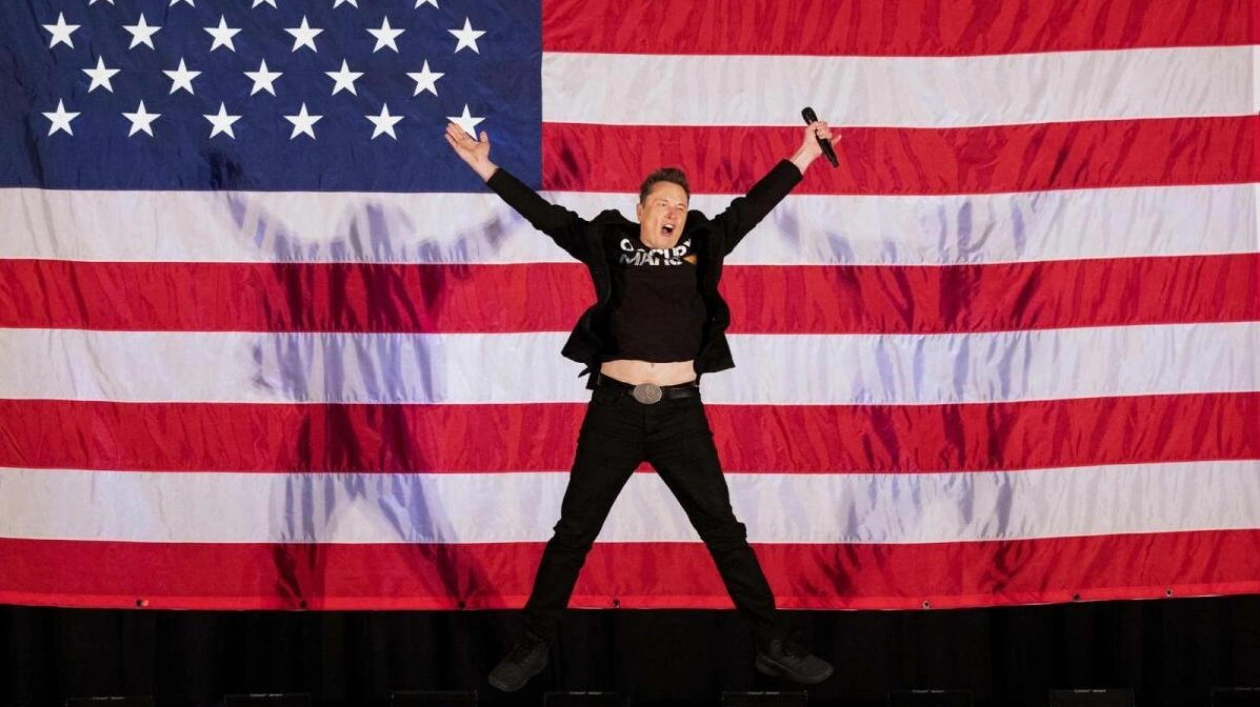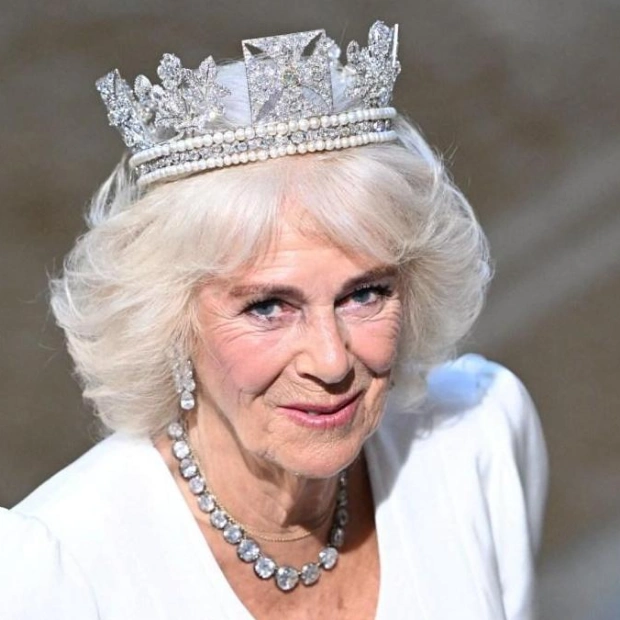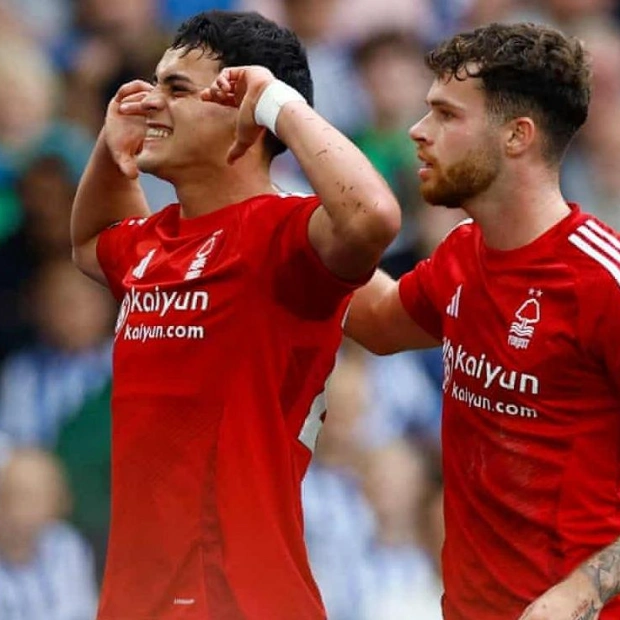Tesla and SpaceX CEO Elon Musk took the stage at a town hall event hosted by America PAC in support of Donald Trump at the Greater Philadelphia Expo Centre in Oaks, Pennsylvania, on October 18, 2024. Musk reportedly invested at least $119 million in canvassing efforts for Trump across seven key battleground states.
Following Vice-President Kamala Harris' swift rise to the top of the Democratic ticket, Trump's allies and advisors urged him to maintain a focused message. Polls indicated that Americans trusted Trump more than Harris on economic and immigration matters. However, in the final months of the campaign, Trump opted to follow his own strategy: deviating from prepared remarks, launching personal attacks, and emphasizing anti-immigrant rhetoric, while disregarding advice from his allies to stay on message.
As Trump secured his victory on Wednesday, earning 294 electoral votes to Harris' 223, with several states still tallying votes, the outcome was not just a win for him but also a victory for the disruptive, no-holds-barred politics of Trumpism. Compared to his previous campaigns, this time around there were fewer leaks, less internal strife, and a more strategic approach crafted by seasoned professionals. Yet, the force behind his third White House bid was ultimately the candidate himself, particularly in the final weeks, marked by erratic, apocalyptic speeches and race-baiting attacks on Harris.
Reuters interviewed over 20 of Trump's allies, advisors, donors, and Republican operatives to detail how Trump orchestrated his remarkable comeback, becoming the first former president in over a century to win a second term after leaving the White House. The interviews revealed how he formed crucial alliances, including with tech mogul Elon Musk, who reportedly spent at least $119 million on canvassing for Trump in the seven battleground states. Trump also resisted calls to replace senior campaign staff, opting to retain a team that avoided the internal chaos of his previous campaigns. He focused on immigration rather than abortion, where Democrats held an advantage with voters.
Scott Bessent, a Trump donor and economic advisor, recounted a meeting in August with Trump's speechwriters to discuss a major economic speech planned in North Carolina. However, when Trump took the stage, he largely disregarded the script, shifting focus to border issues and crime, and launching personal attacks on Harris. Bessent initially found Trump's address surprising, but the crowd's positive reaction and subsequent feedback from blue-collar workers made him realize the effectiveness of Trump's political instincts.
Issues beyond Trump's control provided him with inherent advantages. Harris' shortened campaign timeline reduced her window to appeal to voters and launch attack ads against Trump. Musk's ownership of Twitter (now X) provided a platform for misinformation to spread rapidly, including false claims about migrant crime that resonated with many voters. Additionally, Trump capitalized on voters' dissatisfaction with the economy, successfully pinning rising prices on the Democrats.
The inflation rate had dropped significantly this year, but the relief came too late for Harris. Prices during the first 35 months of Democratic President Joe Biden's administration rose by 17.6%, nearly triple the 6.2% increase during the first 35 months of Trump's 2017-2021 term, according to the Bureau of Labor Statistics. Republican pollster Whit Ayres noted that many voters recalled the pre-pandemic Trump economy more favorably than the Biden-Harris economy.
A majority of voters trusted Trump more to handle the economy, with 51% expressing this view compared to 47% for Harris, according to preliminary results from a national exit poll conducted by data provider Edison Research. Voters who prioritized the economy overwhelmingly supported Trump over Harris, with a 79-20% split.
Trump's hardline rhetoric on immigration and other issues, which many Americans found unsettling, resonated on a visceral level with some supporters, particularly white, working-class voters in economically struggling towns. These voters saw Trump as an anti-establishment figure who understood their grievances.
Up until the summer, the Trump campaign was largely coasting. Despite refusing to debate his Republican rivals during primary elections, Trump easily secured the party's nomination. In May, when he became the first former US president to be convicted of a crime, opinion polls showed him ahead of Biden in key battleground states. On June 27, Trump received a significant boost when Biden performed poorly in their first debate, leading Trump allies to discuss winning traditionally Democratic states like Virginia and New Hampshire.
Then, on July 13, Trump was grazed by a would-be assassin’s bullet during a speech in Pennsylvania. His party rallied around him, and iconic photos of Trump with a blood-stained face and a fist in the air were hailed by supporters as symbols of his strength and endurance. Musk endorsed Trump later that same day.
The Republican National Convention a few days later had a triumphant air. Several business executives and donors at the convention expressed hopes of securing roles in a second Trump administration.
That week, Trump announced his running mate would be Senator JD Vance, author of the best-selling 2016 memoir Hillbilly Elegy and a youthful advocate of isolationism, trade restrictions, and strict abortion curbs. The pick brought few new voters into Trump's corner, underscoring the ex-president’s confidence in his impending victory.
Just three days after the convention, however, Biden announced he was dropping his re-election bid. Harris quickly emerged as the alternative, raising $100 million in two days and unifying the Democratic Party almost overnight. The Trump campaign appeared caught off guard, with no immediate statement released after Biden's withdrawal. While the main pro-Trump super PAC, MAGA Inc, released an attack ad almost immediately, it took days before the campaign launched a major anti-Harris ad blitz.
Over the summer, Trump and his allies questioned campaign managers Susie Wiles and Chris LaCivita about what went wrong. Up to that point, Wiles and LaCivita had won praise from Republican insiders for running a more disciplined operation than Trump’s past campaigns. Now, however, some of Trump’s allies questioned why the pair agreed to an early debate that upended a race they were on course to win.
Trump responded by hiring Corey Lewandowski, a longtime adviser known for supporting some of the ex-president’s most controversial instincts, including his tendency to lean into conspiracy theories. Lewandowski’s mid-August arrival fueled a sense of paranoia in the campaign, with operatives reporting that he began reviewing campaign expenses and briefing Trump separately from the rest of the leadership team.
As Harris retained a small lead in some polls in September, Trump leaned into dark rhetoric about migrants. Some donors and advisers feared this tactic would alienate independent voters, yet the rhetoric kept the spotlight on immigration, an issue that favored Trump more than Harris, according to opinion polls.
At his September 10 debate with Harris, their only face-to-face showdown, Trump repeated false claims about Venezuelan gangs taking over parts of a Colorado town and championed a false rumor about Haitians in Ohio stealing and devouring their neighbors’ pets. As these lines went viral, donors urged the campaign to focus on other issues, but Trump doubled down.
By October, Musk had set up camp in must-win Pennsylvania and was giving away $1 million each day to a voter who signed a conservative political petition. Only those registered to vote in one of the seven swing states would be eligible to sign the petition. By the end of the campaign, Trump's rhetoric was turning angrier and more apocalyptic, frequently warning of a global nuclear war should he lose.
In the final weeks, Trump appeared to gain momentum in polls, showing little restraint. He repeatedly warned of the “enemy from within” when referring to political opponents, words that Democrats denounced as dangerous and reminiscent of fascist rhetoric. His speeches went off on increasingly odd tangents, discussing topics like the purported size of the late golfer Arnold Palmer’s private part and musing about life on Mars.
Trump’s aides said he set the pace of his events and talked as long as he wanted, often in an unscripted style he called “the weave” – a meandering approach that he claimed always returned to his initial point. At a rally at Madison Square Garden in New York nine days before Election Day, a pro-Trump comedian called Puerto Rico a “floating island of garbage,” sparking an instant backlash and risking alienating the key Puerto Rican vote in crucial battleground states.
Two days later, a week before Election Day, Trump got a break – and ran with it. Responding to the comedian’s insult, Biden seemingly referred to Trump supporters as “garbage.” Trump’s showman instincts kicked in, donning an orange safety vest and climbing into a garbage truck before a sea of cameras in Wisconsin. The moment went viral on social media, possibly distracting some voters from his vulnerable issues.
In the end, a critical mass of American voters either positively embraced Trump’s dark vision or were willing to overlook it. “If you were going to be turned off by Trump’s rhetoric, you’d already be a Harris supporter,” said Republican consultant Jon Fleischman. It was the economy, Fleischman argued, that in the final hours led undecided voters to break for Trump.
Source link: https://www.khaleejtimes.com






